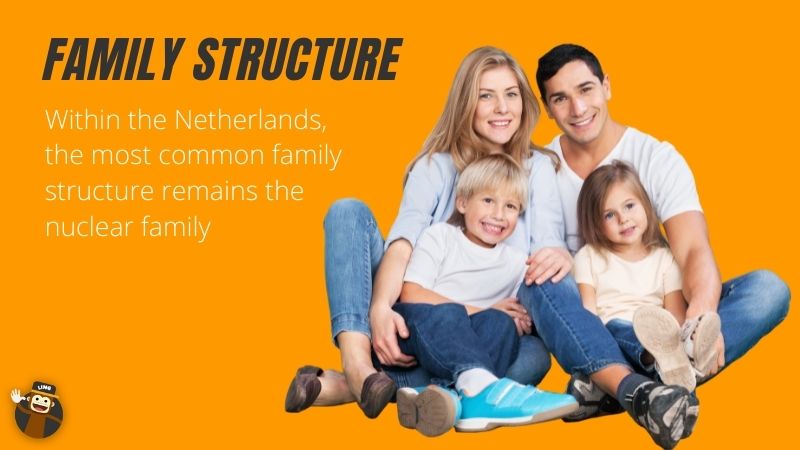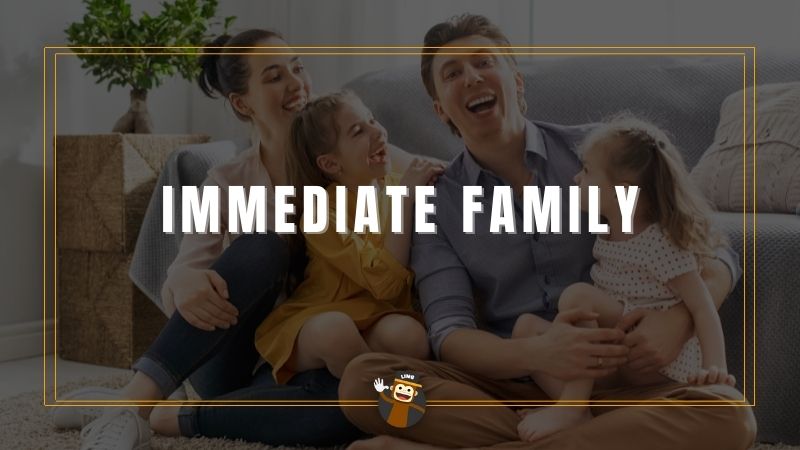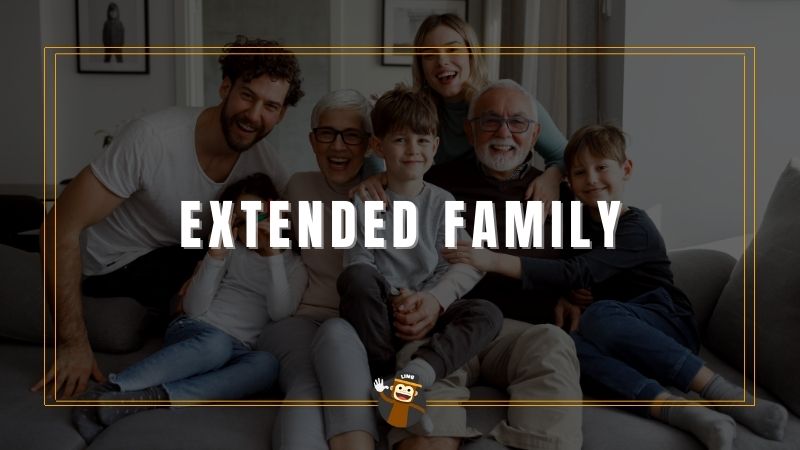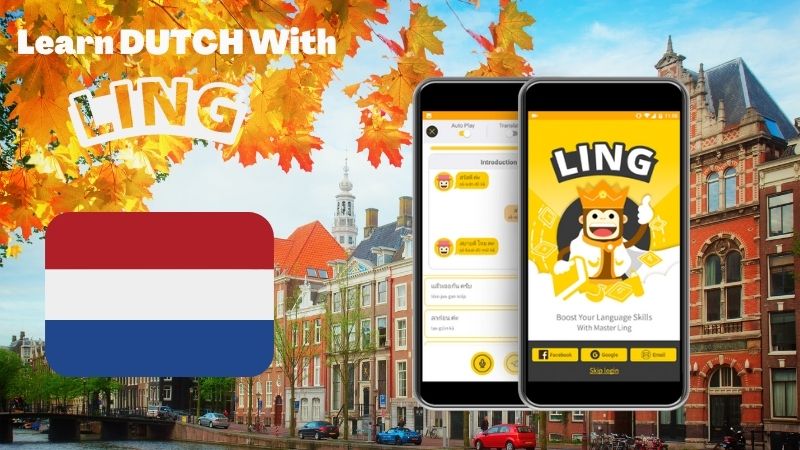As a child, learning all about the names of family members is a part of growing up. As an adult, this topic may seem less important. However, if you have fallen for someone special in the Netherlands who speaks Dutch, knowing the Dutch vocabulary for family members will be valuable information!
A native speaker will, of course, already know the ins and outs of discussing and describing the family in Dutch. You will have the task of learning Dutch to catch up! Thankfully, as you’ll see, the Dutch words for family members sound an awful lot like their English counterparts, making learning this part of a new language much easier to remember.
Knowing how to ask about or address your significant other’s family will impress everyone and you should also practice introducing yourself in Dutch too!
Let’s get going!
The Dutch Family Culture
How important is family to a Dutch person? It turns out the family is highly valued and respected. Family members are expected to support each other, and their bonds are strong.
The Dutch do maintain a distinction between immediate and extended family. Relationships between blood relatives are much stronger compared to the bonds between relatives by marriage. A more significant amount of emotional and financial support is granted to the immediate ‘blood’ family. Still, extended family members are supported as well, but in a lesser way.
As a people, the Dutch are brought up in a culture of self-reliance and independence. Most young people leave their family home at eighteen to work or attend university. After that, they tend to go out independently and start their own family home. Traditionally, multi-generational homes were not ordinary in the Netherlands, meaning the entire family didn’t live under one roof.
This is, however, changing as the costs of living are rising. Nowadays, it’s common for adult children or young married couples to live in the family home until they can go out on their own.
Family Structure

Within the Netherlands, the most common family structure remains the nuclear family. It’s common for close extended family to live nearby and for families to spend free time together. The Dutch also accept other family living arrangements, such as same-sex couples and same-sex families living together.
How To Describe Family In Dutch
In the Dutch culture, the family is separated into two distinct types:
This is the immediate or blood family that share a house. This family unit most often consists of parents and children.
This refers to the extended family such as aunts, uncles, grandparents, cousins, in-laws, etc.
Immediate Family Vocabulary In Dutch

These are the immediate names for family members in Dutch that typically live under one roof:
| English | Dutch | Pronunciation |
| Brother | De broer | |
| Children | De kinderen | |
| Daughter | De dochter | |
| Father/daddy | De vader/papa | / |
| Mother/mommy | De moeder/mama | / |
| Parents | De ouders | |
| Sister | De zus | |
| Son | De zoon |
Extended Family Members In Dutch Vocabulary

These are the Dutch vocabulary for a family that is blood-related but is extended family:
Dutch Vocabulary For In-Laws
Of course, many families go through divorce or separation and then expand their family by remarrying. These are all the family names for in-laws in Dutch:
Dutch Vocabulary For Step-Family Members
Of course, with in-laws come step-family members. This is the vocabulary you’ll need to discuss on this side of the family:
| English | Dutch | Pronunciation |
| Half brother | De halfbroer | |
| Half-sister | De halfzus | |
| Stepbrother | De stiefbroer | |
| Stepfather | De stiefvader | |
| Stepmother | De stiefmoeder | |
| Stepsister | De stiefzus |
Other Family-Related Vocabulary In Dutch
This is the kind of family title information that is often asked of you on government documents, or sometimes people will be curious on dating apps, for example, and wish to know your family distinction:
| English | Dutch | Pronunciation |
| Divorced | Gescheiden | |
| Married | Getrouwd | |
| Single | Enkel | |
| Widow | Weduwe | |
| Widower | Weduwnaar | |
| Separated | Uit elkaar gehaald |
Questions To Ask People About Their Family In Dutch

You may find it helpful or polite to ask someone about their family. Remember to only really attempt this with people you know. To inquire about these questions with complete strangers would be considered odd in Dutch culture and off-putting.
There You Have It!
We hope you bookmark this page when you need to reference Dutch vocabulary for family, and we’d also like to suggest you learn how to say thank you in Dutch to be polite around new or potential family members.
We also hope you’re on the hunt for more Dutch lessons because we know the perfect tool to help you become a native speaker in no time!
Learn Dutch With Ling

Learning Dutch with Ling offers a different learning experience because we hire native speakers to help curate and design each language course.
You’ll receive reading and audio practice to improve pronunciation and increase vocabulary. You’ll also get to practice speaking and writing with our patented chatbot. The AI technology will help you simulate a real-life conversation! Being backed up by native speakers, we assure you will naturally learn daily life phrases.
Ling also has writing practice which uses an interactive whiteboard that allows you to write on your phone screen.
We also strive to make learning fun! So don’t wait any longer to start your learning journey.



































































